S R Nathan: The envoy in the hot seat — twice
SINGAPORE — They are among the most significant postings on Singapore’s diplomatic roster, and Mr S R Nathan was entrusted with helming both — a testimony of his leading role in cultivating the Republic’s international relations.
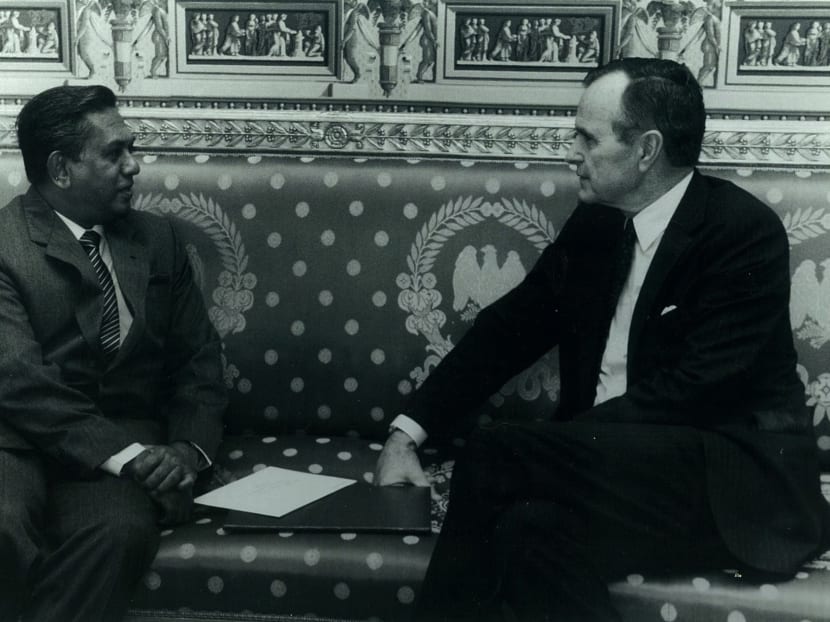
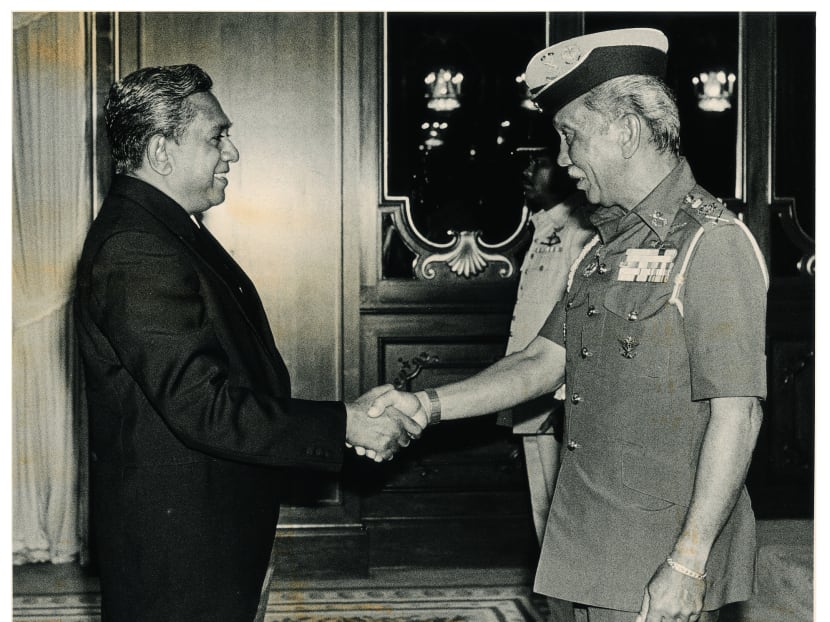
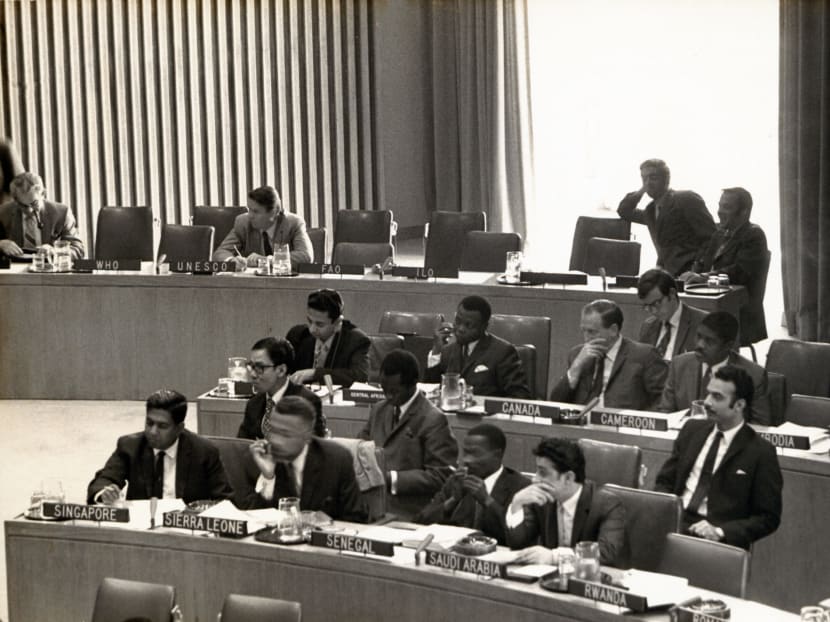
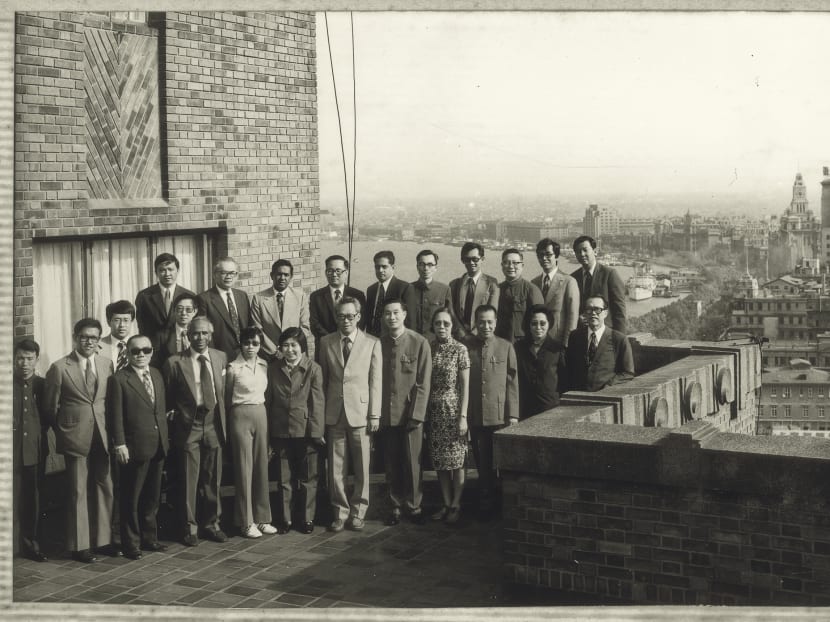
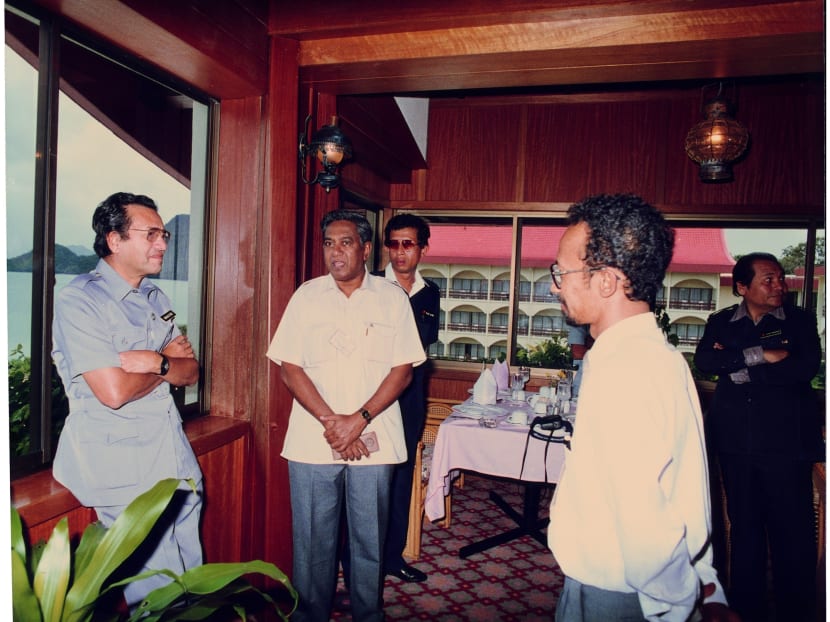
SINGAPORE — They are among the most significant postings on Singapore’s diplomatic roster, and Mr S R Nathan was entrusted with helming both — a testimony of his leading role in cultivating the Republic’s international relations.
In his time in Kuala Lumpur, he had to navigate a period of tense bilateral ties marked by a tussle over Malayan Railway land in Singapore, and the Pedra Branca dispute that was referred to the international courts to avoid a dangerous escalation.
As ambassador to the United States, the Michael Fay incident stood out, where he held the line for Singapore amid condemnation, abuse and threats from the American public, and pressure from an official appeal by President Clinton.
As Prime Minister Lee Hsien Loong had said of Mr Nathan: “His combination of charm and toughness proved invaluable in building up our diplomatic networks.”
Several issues worked against him when Mr Nathan took up the High Commissioner to Malaysia post in 1988 — his first overseas diplomatic posting — including apprehension among Malaysian officials of his previous job in the Security and Intelligence Department and a shaky political landscape that saw an Umno split.
But Mr Nathan approached his task matter-of-factly.
“Since Singapore and Malaysia would always be neighbours whether we liked it or not, there were bound to be irritants in the relationship,” he had said. “My task was to help (today’s generation) get to know one another and work together better.”
One of the tasks that took up much of his time as high commissioner was helping to wrest back Malayan Railway land in Singapore from Putrajaya, which was holding out for higher compensation.
But the “particularly serious” issue requiring his attention, recounted Mr Nathan, was the ownership of Pedra Branca. The situation escalated in June/July 1989, following increasingly provocative behaviour by Malaysian police boats. The matter would later be referred to the International Court of Justice.
In Washington DC, Mr Nathan had to contend with another set of challenges, one of which was Clinton’s officials in the White House being reluctant to have official dealings with the Singapore Embassy, deeming the Republic to have fallen short in areas such as press freedom, human rights and democracy.
The dominant episode, however, came in 1994. An 18-year-old US citizen named Michael Fay committed a spate of acts of vandalism on several cars, and he was sentenced to four months’ jail, six strokes of the cane and a fine of S$3,500.
Interest in the case in the US media was lukewarm at first, but got fanned by fictitious reports and led to The New York Times pushing an op-ed calling on readers to protest the punishment dished out by flooding the Singapore Embassy with calls. One of these threatened that a Singapore citizen would be executed in retribution for any harm to Fay.
Soon after, President Clinton criticised the punishment in a doorstop interview before making official representations to President Ong Teng Cheong for Fay’s caning to be commuted. Cabinet considered the request and reduced the punishment by two strokes, falling short of President Clinton’s anticipation of total clemency.
Mr Nathan made no apologies and even appeared on television talk show Larry King Live to defend Singapore’s position.
“I was expecting a public grilling, seen by a worldwide audience. I was also prepared to stand my ground,” he recounted in his memoirs. “A factor in our own minds was that Singapore could not be seen to be practising double standards. We had previously caned many of our own criminal offenders, and nationals from neighbouring countries. Our own public and these governments were watching closely to see if an American would get special treatment.”









